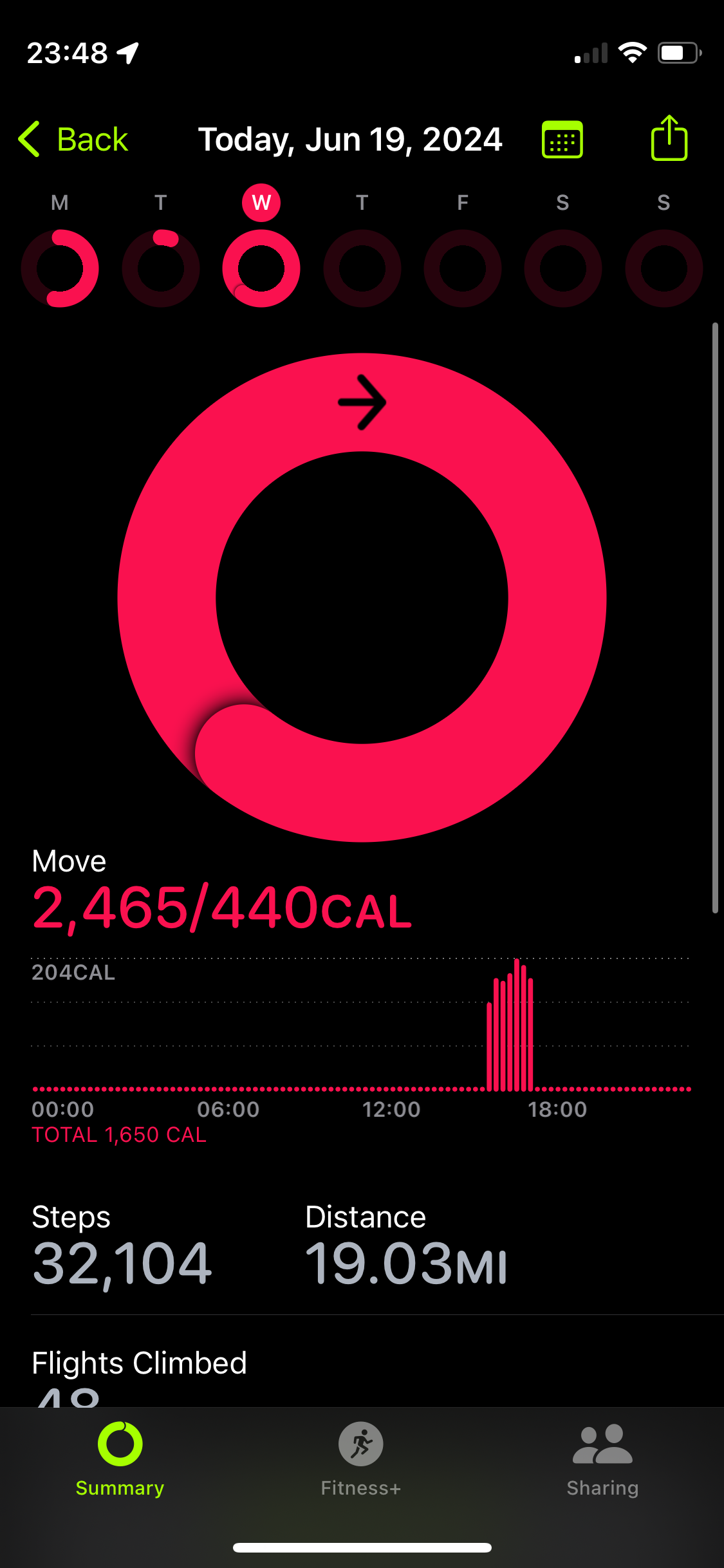Depending on your fitness goals, there might be shortcuts available to you. If you want to train for powerlifting, you can sometimes shorten your training sessions by lowering weights and reducing rest times; you'll still get a good workout in that will push you towards your goals, even if it might be a suboptimal workout. If you want to run a fast 10k, you can do some slower jogs or faster sprints to still improve your running technique and speed without the effort of a full run.
But when you're at my stage of running, where the goal is only to run a very specific distance (yes, I'm training for another marathon), there is no substitute for miles.
A mile is a mile is a mile.
Fitness
A mile is a mile.
I need to be able to run more than 26 miles. This comes with some rather significant lung and leg capacity requirements. And as I learned last year, there's no substitute for a mile. You can't run the mile faster to get it over with: that wouldn't train you to sustain a jog for the remaining 25 miles. You can't walk the mile and call it a mile: that doesn't simulate the repetitive thudding of a jog.
A mile is a mile.

Fatigue
I can't run a half marathon and extrapolate out that you could run a full: I can do 2 hours of running right off the couch (as I basically did in May) but I need mental preparation to do 3, and I'll be running the actual marathon for closer to 5 hours. The fatigue does not accumulate linearly, it ramps as you go.
I separate fatigue from fitness because I realized that last year I was fit enough to run the marathon. Because of all the 15 mile runs I had done in training and the pace I was running at, my lungs were never strained. Despite the violent cramping in the race, none of my muscles were sore the next day. I was fit enough, but I did not manage my fatigue and pain well enough. This year I've already done a 20 mile run. It sucked, but for the same reasons as the marathon: my fitness was fine but my pain and fatigue management was not, particularly after mile 16 or 17.
A mile is a mile.

Weight
I currently weigh 200 pounds. That's a lot of weight to take for a 26 mile jog. Each pound of body weight is 4 pounds of force in the knee, and I already have knee issues. I was ambitiously targeting 20 pounds of weight loss by race day when I started training more seriously, but I've basically held steady at my current weight. At this point the target is a still-aggressive 10 pounds, but that's 40 fewer pounds of force on my poor left knees.
A mile is a mile.

